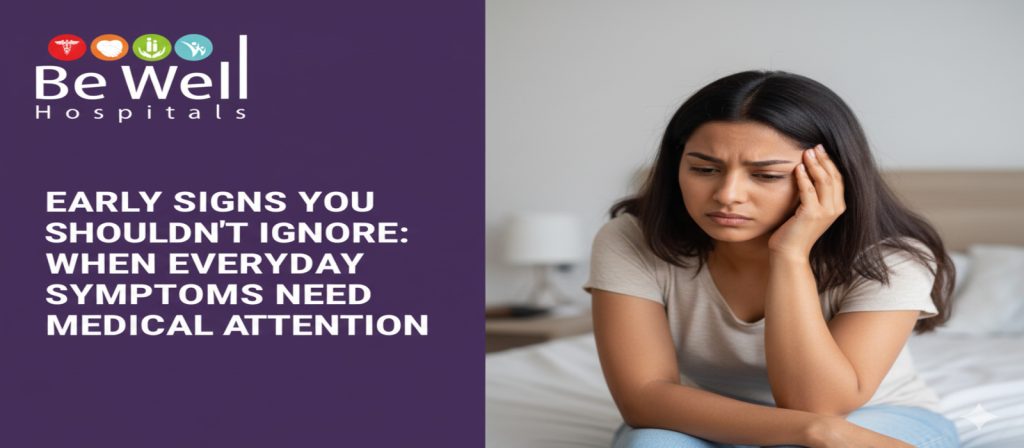
Introduction
Most of us are guilty of ignoring the little things – fatigue that lingers, mild discomfort, or just feeling “off.” We power through work, family, and routine, assuming it’s nothing. But here’s the truth: our bodies are great at warning us. The problem is, we often stop listening.
Not every ache or tired day needs a doctor, but certain patterns – persistent changes, recurring discomfort, or anything that feels unusual – deserve attention. Early action can make all the difference between a minor fix and a major concern.
Why People Ignore Warning Signs
It’s surprisingly common to delay medical attention. We tell ourselves we’ll rest over the weekend or check it later. Sometimes it’s fear, sometimes it’s convenience. But delay is exactly what allows small issues to turn serious.
Ignoring early warning signs is like ignoring the service light on your car dashboard – it runs fine for a while, until it doesn’t.
Common reasons people ignore symptoms include:
- Assuming it’s just stress or age
- Depending on home remedies for too long
- Being too busy or anxious to visit a doctor
- Feeling fine “most of the time”
Recognizing this mindset is the first step toward preventive health.
Why Early Detection Matters
Most health conditions – from lifestyle-related issues to infections – are far easier to manage when caught early.
Early detection means:
- Shorter treatment time
- Lower medical costs
- Less disruption to life and work
- Better long-term outcomes
Even something as simple as a yearly health check can uncover silent changes before they show symptoms – blood sugar creeping up, mild thyroid imbalance, or early nutrient deficiencies. Acting early often prevents the need for aggressive treatments later.
When Everyday Discomfort Deserves Attention

Instead of worrying about every small ache, focus on consistency and change.
Ask yourself:
- Has this feeling persisted longer than usual?
- Does it keep coming back even after rest or medication?
- Is it affecting my sleep, focus, or mood?
If you answer yes to any of these, it’s a good time to talk to your doctor – not because it’s alarming, but because it’s smart. Getting reassurance early is better than reacting late.
How to Stay Proactive About Your Health
You don’t need to wait for symptoms to act. Building simple preventive habits helps you stay ahead:
- Schedule annual health checks. They help track subtle changes before problems appear.
- Pay attention to your “normal.” If something feels off, note it.
- Keep a basic health log. Track energy, appetite, and sleep patterns once a month.
- Listen to fatigue and stress. They’re early signals, not background noise.
- Choose movement, balanced food, and hydration. Prevention always starts with daily consistency.
The Role of Preventive Care
Preventive care isn’t just about tests – it’s about awareness, habits, and timely consultation. Hospitals and clinics now offer wellness programs designed to detect early changes before they evolve into illness.
At Be Well, for example, our philosophy has always been simple: keep families healthy, not just treat them when they’re sick.
That’s the heart of preventive healthcare.
Conclusion
You know your body best. If something doesn’t feel right, don’t wait for it to become obvious. Early attention is not overreaction – it’s wisdom. When in doubt, get checked, get clarity, and stay well.
A quick conversation or a simple health check can give peace of mind and help you stay in control of your health. Listen early. Act early. Live well. Visit your nearest Be Well Hospitals or call 9698 300 300 to book your appointment today and take the first step toward better health.
